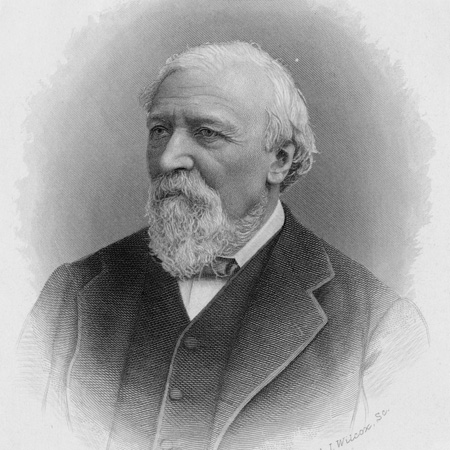Robert Browning

Robert Browning’s famous poetry collection Dramatis Personae includes the poems like James Lee’s Wife, Gold Hair: A Story of Pornic, The Worst of It, Dîs Aliter Visum, Too Late, Abt Vogler, Rabbi Ben Ezra, Death in the Desert, Deaf and Dumb, Prospice and several other poems.
Robert Browning’s poetry is famous for his robust optimism. This is evident in his famous lines from Rabbi Ben Ezra:
Grow old along with me!
The best is yet to be.
Rabbi Ben Ezra clearly shows that the poet welcomes every sorrow and adversity. He advises us to “welcome each rebuff”. In one of the most eloquent lines Robert Browning inspires us thus: “Be our joys three-parts pain.”
What an excellent line! His optimism looks true and convincing, as it is not a mere abstraction.
One reason for the singularity of his optimism is that he is not afraid of death. This is reflected in his poem Prospice included in Dramatis Personae that he wrote as a tribute to his wife Elizabeth Barrett Browning. Prospice is a Latin word that means ‘look forward’. The idea of the poet is that death will give him an opportunity to meet his wife. The uniqueness of this poem is that the poet regards death as the best and last fight:
I was ever a fighter, so---one fight more,
The best and the last!
I would hate that Death bandaged my eyes, and forbore,
And made me creep past.
No! let me taste the whole of it, fare like my peers,
The heroes of old,
Bear the brunt, in a minute pay glad life's arrears
Of pain, darkness and cold.
What a terrific line! The poet dislikes that Death ‘bandaged’ his eyes. His optimism is not of idle and wordy type. He is willing to fight death, looking it full in face with an immense heartiness. Death is “the best and the last” fight. The line shows immense physical zest of Browning.
He is absolutely certain of meeting his wife. Browning is at his best in his lyric Prospice.
His optimism pervades all his poetry. This is quite different from the elegiac note that is predominant in Matthew Arnold’s poetry. Browning is full of zest in his attitude toward life:
Ah, but a man's reach should exceed his grasp.
Or what's a heaven for?
There is nothing doubtful and pessimistic in all his poetry. He aptly says:
God is in Heaven
All is right with the world.
“Browning has conquered life, instead of being conquered by it” (James Thomson).
